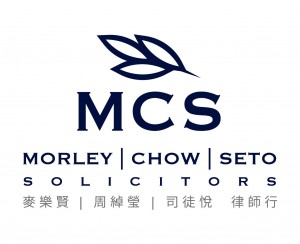1 October, 2015
As criminal enterprises have gotten savvier with their methods of laundering money, financial institutions have also had to step up their protocols for identifying suspicious transactions and ensuring they are in compliance with all the relevant anti-money laundering (“AML”) laws. In fact, the Hong Kong Monetary Authority (“HKMA”) announced back in June 2015 that some banks in Hong Kong may have failed to meet AML requirements, specifically in part because the systems those banks have in place for know-your-client (“KYC”) background checks on clients were inadequate. We had a chance to catch up with the solicitors at Morley Chow Seto to learn more about the HKMA’s investigative and enforcement powers as well as how financial institutions are identifying suspicious transactions and how banks may ensure they have sufficient compliance checks in place.
Conventus Law – What investigative powers does the HKMA have under the Anti-Money Laundering and Counter-Terrorist Financing (Financial Institutions) Ordinance, Cap 615 ( “ the Ordinance”)
Morley Chow Seto – Under section 9 of the Ordinance an authorised person of the HKMA has (for the purposes of ascertaining whether a financial institution has complied with or is complying with the Ordinance) the power to:
- Enter the business premises of the financial institution
- Inspect and make copies of records and documents relating to the financial institution’s business
- Make enquiries of persons at the financial institution in relation to the financial institution’s business
- Require the production of documents and answers to questions put
Section 10 lists various penalties including fines and imprisonment for those who fail to comply with a requirement under section 9 without reasonable excuse.
If the HKMA has reasonable cause to believe that an offence may have been committed under the Ordinance, it has powers to require a person to produce a record or document and/or to attend at an interview to answer questions relating to the investigation AND if the answer to a question may incriminate the person he/she is not excused from answering (note – in these circumstances section 15 of the Ordinance can be relied upon to claim privilege – similar to section 187 of the Securities and Futures Ordinance)
CL – What enforcement measures may the HKMA take to enforce the provisions under the Ordinance? Are there a variety of options available to them or are their enforcement powers limited?
MCS – The HKMA can take disciplinary action against the financial institution which includes:
- Public reprimand
- A requirement to take remedial action
- A fine of HK$10 million or 3 times the profit gained or cost avoided as a result of the contravention (whichever is the greater)
CL – The HKMA announced back in June 2015 that some banks in Hong Kong may have failed to meet anti-money laundering (“AML”) requirements, specifically in part because the systems they have in place for KYC background checks on clients were inadequate.
a. Are banks finding it difficult to implement a KYC systems check that satisfies the HKMA due to a lack of clear guidelines in the Ordinance or is it because the HKMA increases its expectations as the banks’ clients become more sophisticated in their money laundering efforts? In other words, are the standards for compliance static or dynamic in nature?
MCS – The HKMA has only reported disciplinary action against one bank under the Ordinance – that was in July 2015 so if that is a yardstick then the answer is no. There may, of course, be many situations where the bank concerned is not disciplined.
b.Moving forward, what may businesses do to ensure that their KYC checks are compliant with the Ordinance and will satisfy the HKMA?
MCS – Schedule 2 of the Ordinance also sets out the KYC requirements under the Ordinance and allows banks (until March 2018) to use intermediaries (such as solicitors) in the due diligence/KYC process.
Also, there are guidelines issued by the HKMA which can be found here:
http://www.hkma.gov.hk/eng/key-information/guidelines-and-circulars/guidelines/
CL – The HKMA also found in June 2015 that some banks may have failed to meet AML requirements under the Ordinance due to a lack of a good record-keeping system to monitor suspicious transactions for reporting to the Joint Financial Intelligence Unit.
a.Is there a definition for “suspicious transactions” under the Ordinance?
MCS – No – for that we have to go to section 25A of the Organized and Serious Crimes Ordinance, Cap. 455 )”OSCO”)
b.How can financial institutions ensure they are identifying suspicious transactions for reporting purposes?
MCS – The key is knowing enough about the customer’s business to recognise that a transaction, or a series of transactions, is unusual and, from an examination of the unusual, whether there is a suspicion of money laundering. Where a transaction is inconsistent in amount, origin, destination, or type with a customer’s known, legitimate business or personal activities, etc., the transaction should be considered as unusual and the bank should be put on alert.
c.Is there an intersection or possible fear of privacy if banks are required to report “suspicious transactions” that later turn out to be innocuous?
MCS – The provisions of OSCO already specifically exclude legal professional privilege as between lawyers and their clients.
The legislation is designed such that there is an obligation on the banks to police themselves and, where appropriate, to report to the JFIU – the need for this kind of self-policing and reporting is designed to over-ride existing obligations of privacy and privilege. Many suspicious transaction reports (STRs) result in a letter of consent from the JFIU to carry on with the transaction.
The banks fulfil their obligations under the Ordinance and OSCO by due diligence and reporting.
For further information, please contact:
Christopher Morley, Partner, Morley Chow Seto
christopher.morley@mcs.com.hk
Anita Chow, Partner, Morley Chow Seto
anita.chow@mcs.com.hk
Eric Seto, Partner, Morley Chow Seto
eric.seto@mcs.com.hk






